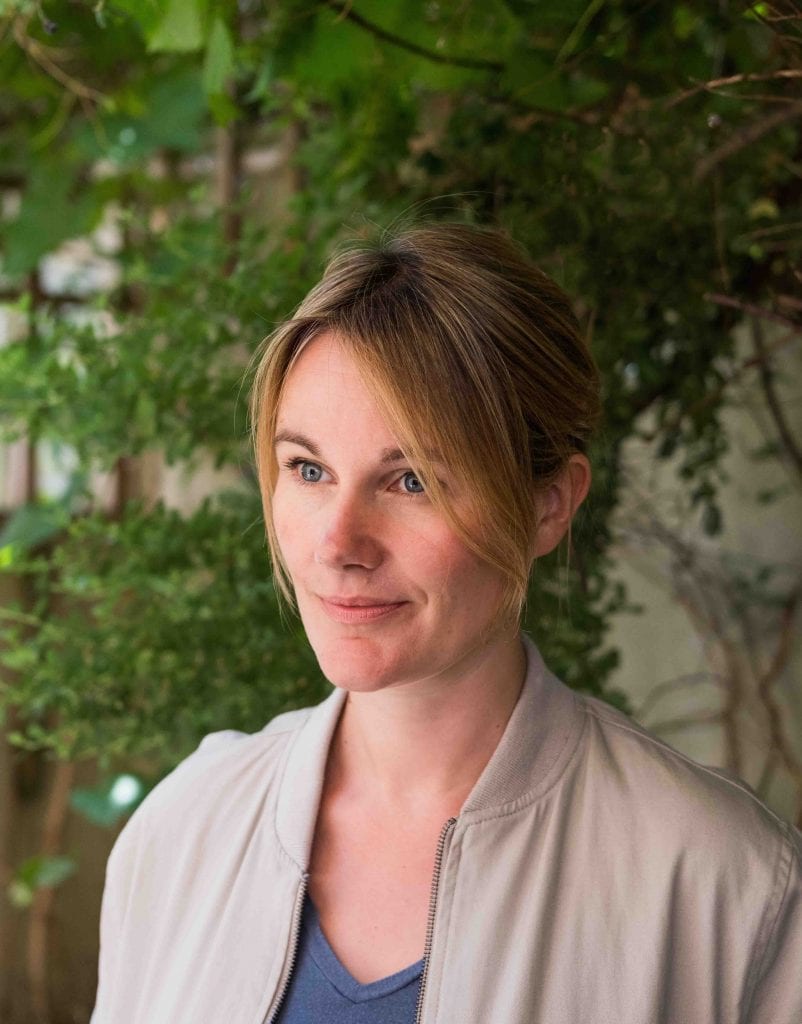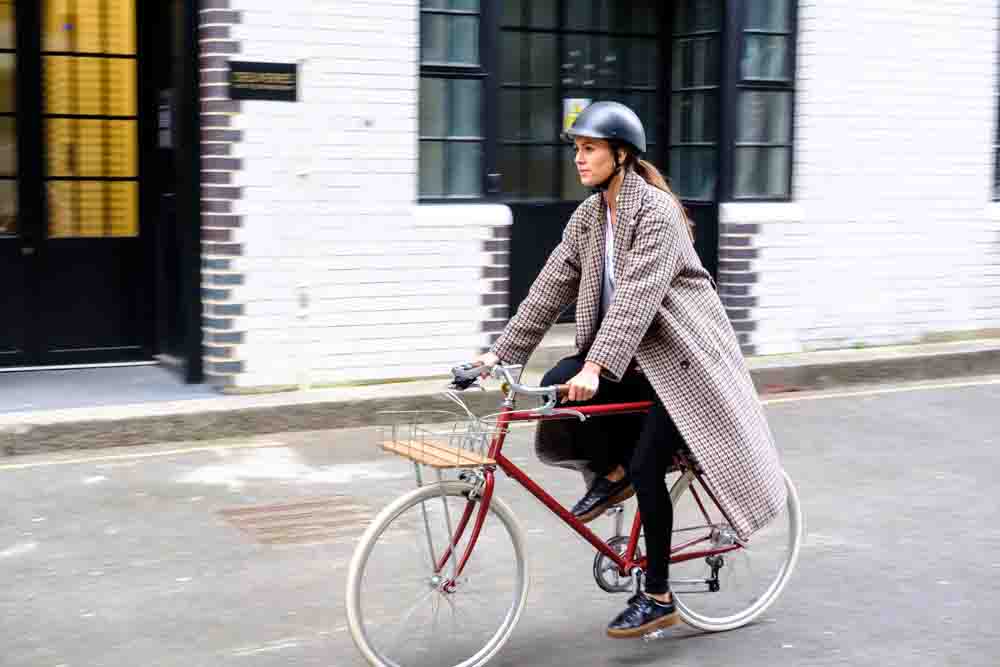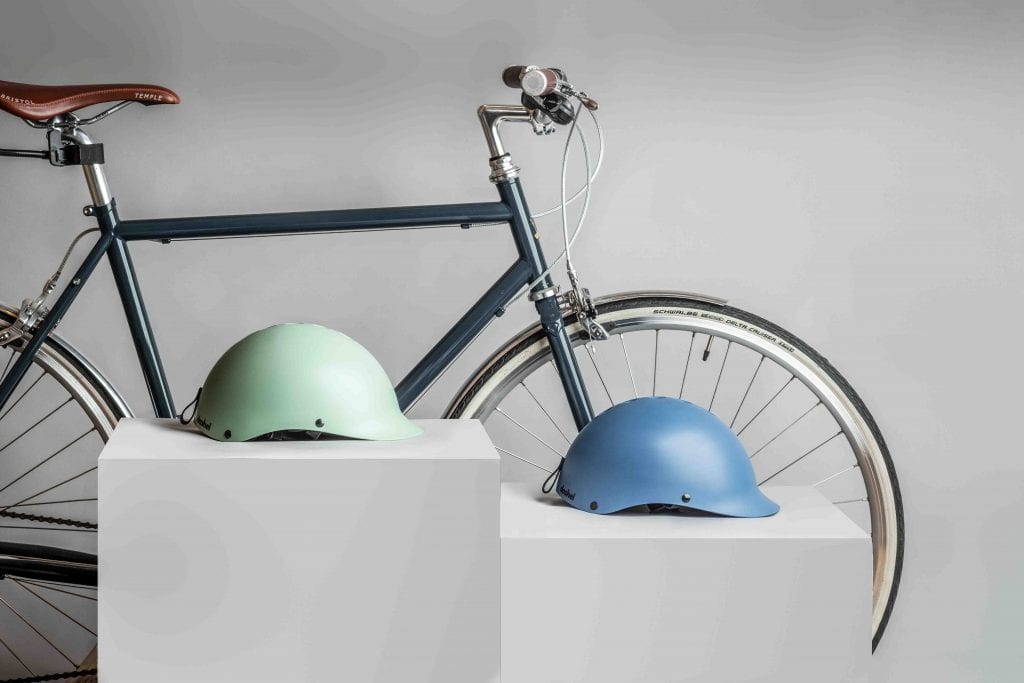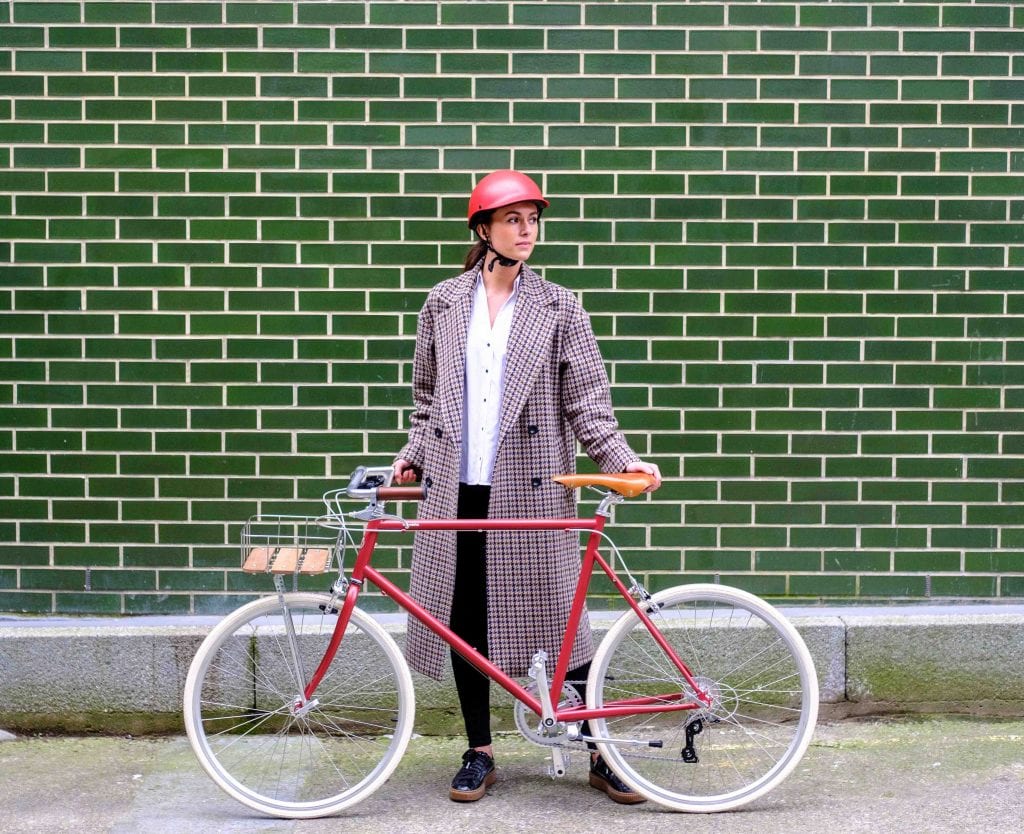In the wake of the Coronavirus, more of us are enjoying cycling for our daily exercise than ever before. In this post we’re talking sustainable cycling gear with Dashel Founder Catherine Bedford. Designed and manufactured sustainably here in the UK, Dashel create stylish helmets made from innovative and sustainable materials. Dashel offer sustainable cycling gear that not only looks good but is good to the planet as well.

To help support key workers throughout the Coronavirus, Dashel are donating cycle helmets to key NHS staff who are now cycling to and from work. They are kicking off this initiative off by working with retailer Fully Charged, providing 20 helmets to match the 20 e-bikes donated by GoCycle.
Dashel Sustainable Cycling Gear Begins…
Q. What first inspired you to start Dashel?
I had worked for big brands for years and I was lecturing on brand development at Cass business school. I’d always wanted to launch my own brand and, in 2012, I decided to take the plunge. It was inspired by a lot of factors: Cycling was really taking off in Britain that year, particularly with the Olympic success. I wanted my child to wear a helmet when cycling but I didn’t wear one myself as I felt so silly in them. I realised there was a gap in the market for something slim and understated that would work when cycling in regular clothes rather than if you were going to go racing or mountain biking.

At Dashel you recognise that product design and manufacture needs to be circular and not linear, could you go a little deeper into what you do to achieve this?
When you start a business all your focus goes into designing and creating a product. And then its launch. Early on in my research and development for creating a cycle helmet, I realised that they had a built-in obsolescence. The eps foam within a cycle helmet degrades over time so helmets need replacing every five years. My first helmet – the carbon fibre version – has a new type of liner that I developed that uses a foam called Arpro that never degrades so you don’t need to replace your helmet unless it’s been crashed.
As a handmade product this couldn’t meet demand and I wanted to create something with a more affordable price point. This meant using eps foam. I was pleased to see in safety tests what incredibly good results eps foam gives. Brands using more expensive materials tend to rubbish it and I was guilty of believing in this without having tested the materials properties myself (testing is very expensive). The pass mark for a helmet is 250 G or below. Second-hand helmets there were over five years old gave results of 120 G. So I knew it would be a material that I was happy to use.
“We are conducting tests on how much recycled material can be put back into new helmet and this will continue after the coronavirus shutdown.”
Dashel Founder Catherine Bedford on creating sustainable cycling gear
However, by law I have to state that this liner will degrade and therefore the helmet needs replacing every five years. I made sure that I chose a firm grade and a helmet shell material that could be recycled.

On growing a sustainable company
What are the main challenges you have faced in forming and growing a sustainable company?
To have a sustainable company you need to have control and sight of your supply chain. For us, this has meant manufacturing in the UK. It has taken a long time to get to market and the set-up costs have been high. People have questioned why we didn’t just go to China and save money. But we know that our UK factories take waste management seriously and look after their workers well.

Cycling and the Coronavirus…
How do you feel the Coronavirus will change the way we travel?
Due to Coronavirus more people have tried cycling to work. It’s fascinating reading about the mayor of Milan who is already starting to worry about what will happen after lockdown ends. More people than ever will get into the cars, traffic jams will be terrible and pollution worse. So, they are thinking about how to keep up the use of the bicycle.
“Fear of busy roads is what stops many people in the UK cycling, it would be great if some urgent measures could be taken to allow more people to safely cycle In the UK in future.”
Dashel Founder Catherine Bedford, on life after the Coronavirus
Making future plans…
What do you see the next five years bringing for the Dashel brand, anything exciting in the pipeline?
We have plans for more helmets over the next five years. We have just launched our kids line it wasn’t quite ready, but we’ve adapted by sourcing stickers instead of using print for Our kids’ helmets. This will be a good way of testing what works. We have another new product in the pipeline, but we don’t want to say what it is yet!
Words of wisdom…
Lastly, for anyone considering getting a bicycle what would you say…
Go for it! Do consider where you get your bicycle from. The independent sector has done sterling work staying open for key workers to service their bikes. Do support them if you can and it’s great to build a relationship with your local store as you’ll be going back there over the years for anything that needs doing to your bike. If your company offers the cycle to work scheme (it’s free for them to do so) then you’re able to buy helmets and bicycles at a reduced price in instalments through tax breaks.
“There’s nothing like freewheeling down the hill after a busy day at work to take away the stresses and strains of it.”
Dashel Founder Catherine Bedford
Dashel offers a range of slim, ventilated, lightweight cycle helmets manufactured in the UK, all made from recyclable materials. This ensures that they low impact at the point of manufacture and produce very little waste at the end of life. Dashel children’s helmets are £39 and available from all good cycle shops and online at Dashel.cc
Big thank you to Catherine for taking the time to share her story.




